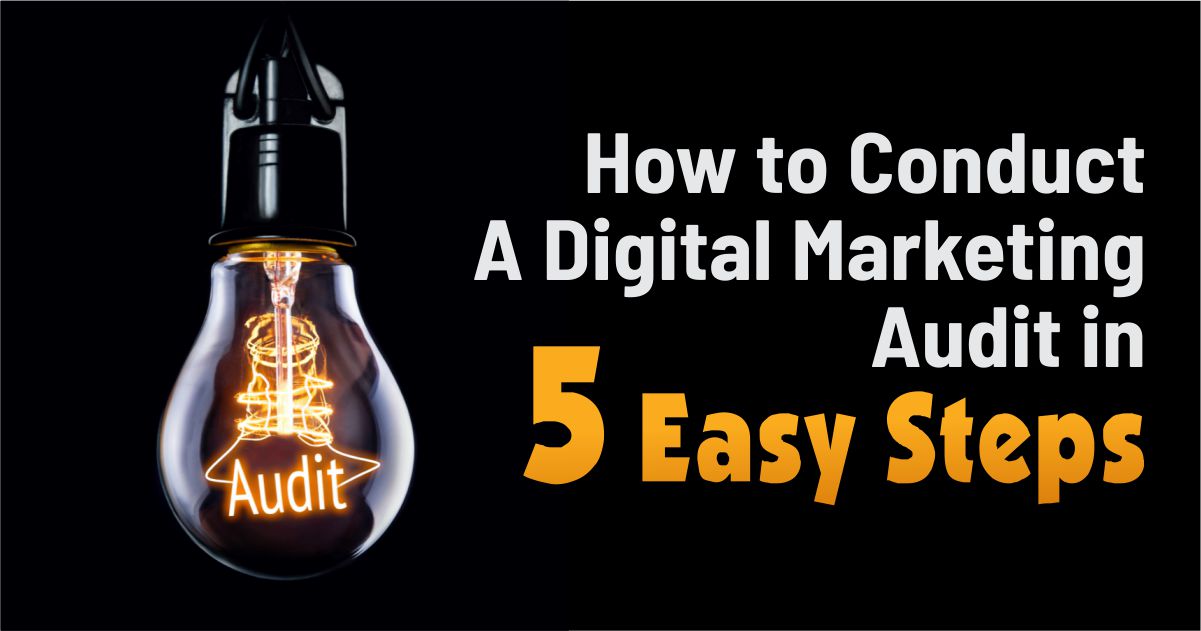Are you seeking the best approach to incorporate digital marketing into your business, or do you think your current strategy needs a boost? If so, it’s likely time for a Digital Marketing Audit.
We mean to say a Digital Marketing Audit, when done effectively, can reveal what you can do to better your current strategy. As you very well know, the more often you evaluate your performance and identify areas for improvement, the better your outcomes will be.
This article will discuss what a Digital Marketing Audit is and how to conduct a Digital Marketing Audit.
Overview
It’s not enough to just have an online presence if it isn’t structured to appeal to your target audience and search engines. This raises an important question: How can you know which of your digital marketing efforts are successful and aren’t? Guessing isn’t effective, and it’s unlikely to provide you with an accurate picture of the health of your marketing strategy. A complete Digital Marketing Audit, on the other hand, will.
Plan, Execute, Audit, and Adapt are tried-and-true methods for improving whatever you do, and digital marketing is no exception. Audits are a must if you want consistent outcomes from online marketing.
Let us know what a Digital Marketing Audit is.
What Is A Digital Marketing Audit?

A Digital Marketing Audit is a study of the techniques you use to develop an online presence, as well as the results of those efforts. It is a thorough examination of your company’s digital marketing strategy and results. This includes your website, social media accounts, and PPC ads, among other things.
You might wonder – “What’s the point of assessing my own company if I already know what our digital marketing plan is?”. While you may be aware of what your company produces, there’s a strong possibility you don’t realize what you are or aren’t receiving in return.
As a result, before learning how to conduct a Digital Marketing Audit, it’s critical to understand the importance of a Digital Marketing Audit.
Importance of Digital Marketing Audit

A Digital Marketing Audit has several advantages for your company. Following are the importance of a Digital Marketing Audit-
- It keeps track of your current marketing and messaging efforts.
- It aids in the evaluation of your competitors’ performance.
- It assists you in identifying your strengths so that you can promote them.
- It might help you in identifying content gaps in your marketing.
- It aids in the identification of flaws so that they can be eliminated.
Now that you understand the meaning and importance of Digital Marketing Audits. Let’s get started on how to conduct a Digital Marketing Audit.
5 Steps to Conduct a Digital Marketing Audit
Determine Your Key Metrics
What you need to know should be quantified via metrics. Useful metrics align with and balance business priorities, and they can be precisely monitored and benchmarked.

It’s critical to focus on the metrics you wish to track. Furthermore, you may be employing a variety of additional analytics tools.
You’ll become overwhelmed if you try to measure everything.
Focusing on inaccurate or meaningless metrics can have significant consequences, leading to poor business decisions. Hence, it’s essential to reduce measurements to a handful that matter, so you don’t drown in data.
Consider the following questions:
- What are my objectives for the quarter and the year?
- Which metric would I choose to gauge the health of my company?
- Which metric accurately depicts the health or illness of my company?
- Which indicators are the most important for each of my marketing channels?
Proceed to the following step after you’ve written out your objectives and measurements.
Gather Performance Data

You might be wondering where you acquire your data.
Begin with the performance of the website.
Website Audit:

Make a list of your Bounce Rates, Page Load Times, Dwell Times, Opt-in Rates, Error Rates, Conversion Rates, and Click-through Rates. Also, rate the usability of your website.
Email Marketing Audit

Moving ahead, check the effectiveness of email that includes keeping track of Open rates, Delivery Rates, Click-through Rates, Bounce Rates, Revenue per email, Conversion Rates, and Unsubscribe Rates. Are you sending emails to distinct groups of your list, or is it a one-size-fits-all approach?
Social Media Audit

Then, it’s time to track social media performance. See whatever you’re using paid social to its full potential. Are you dividing your attention by being present everywhere or only when your audience is present?
Engagement, Referrals, Impressions, Reach, Share, Conversions, Response Rate, and time are the most prevalent and frequently significant metrics to monitor. When you combine these, you’ll have a 360-degree perspective of your social media performance.
After you’ve all of the necessary numbers, It’s now time to compare your results to your objectives and essential metrics.
Compare yourself to industry standards. How are things going for you? Do you think you’ve made enough progress, or do you need to step up your marketing game?
Whatever the case may be, pay attention to your data’s message since numbers don’t lie.
Determine The Effectiveness of Your Content Marketing Strategy
You may believe that knowing where you’re headed with your content strategy is sufficient and that you don’t need to write it down.

However, according to Marketing Insider Group, having a written content marketing plan is a vital sign of success, with 65 percent of the most successful businesses having only 14 percent of the least successful marketers having one.
Hence, it’s essential to revisit your content marketing strategy and perform content audits. It will include an SEO Audit. Pay attention to the below-mentioned questions-
- Are you using the correct keywords in your campaigns?
- Which content types are more effective for generating leads, increasing brand awareness, or creating links?
- Do you create content for specific customer journey stages?
- Is it possible to use any of your content as an asset for other marketing channels, such as an email campaign or social media promotion?
- Is your content distribution strategy working?
- Are your on-page, off-page, and technical SEO strategies up to par?
- Are any of the links spammy, broken, or from sites that aren’t relevant?
- What kind of content do your direct rivals create?
- How can you minimize the drop-off when a prospect becomes a lead, and a lead becomes a customer?
- What percentage of leads become paying customers?
- Free or paid social media, where do you get the most bang for your buck?
And finally,
- Is your Content Strategy aligned to your goals?
And,
- What are you hoping to achieve by evaluating your content strategy?
Evaluation will assist you in picking up low-hanging fruit, if any, and reveal any repairs in your marketing funnel.
Do Competitive Analysis
Another essential step in conducting a Digital Marketing Audit is competitive analysis, as it is critical to remain strong in a competitive business environment. Analyzing only the Direct Competitors will not justify the overall digital marketing strategy; therefore, the performance of Indirect Competitors and Replacement Competitors must be evaluated.

Look at what works for these three types of competitors.
- Investigate how competitors’ Digital marketing strategies operate to determine the benefits and drawbacks.
- Determine how loyal and engaged users are with the products/services.
- Discover similar functionalities/features in current strategies to see how they are implemented.
- How can you use that strategy to your advantage?
- Is there anything your competitors have left that you can take advantage of?
- What are the tools they are employing?
- What tools are available to you as well?
- How good can you become by navigating all of the fundamentals?
Create a summary of your findings once you’ve completed the analysis. You have no control over your competitors’ strategies. But you can undoubtedly outperform them if you learn from their strategy and make the most of them. The most crucial aspect of the review is to connect the findings to your original objectives.
When you connect the findings to the objectives, your team’s competitive audit becomes actionable. This will help in better selections in the future and discover new opportunities.
Assess Your Team Workflows And Establish Guidelines

You should evaluate how efficiently you and your teamwork in terms of cost and time as part of your Digital Marketing Audit.
This will include watching –
- If there are any marketing products you’re paying for that you’re not using?
- Are your team meetings productive, or is there a better way to communicate?
- Do your teams work well together on group projects?
- Are there any tasks that require significant experience, and you need to hire a new member?

The more time and money you save by evaluating your workflows, the more money you’ll have later to invest in additional digital strategies. But it’s a must to create team guidelines that align with your marketing goals and streamline your processes to discover areas of potential or improvement.
Conclusion

When you conduct a Digital Marketing Audit thoroughly, it identifies and corrects any potential roadblocks and lays the groundwork for your more extensive digital marketing activities. The complete analysis includes design ideas, content marketing techniques, and a plan to ensure that your business’s demands and objectives are met. It also enables us to develop and define relevant goals and targets, crucial in your customized Digital marketing efforts.
Written by – Kirti

















